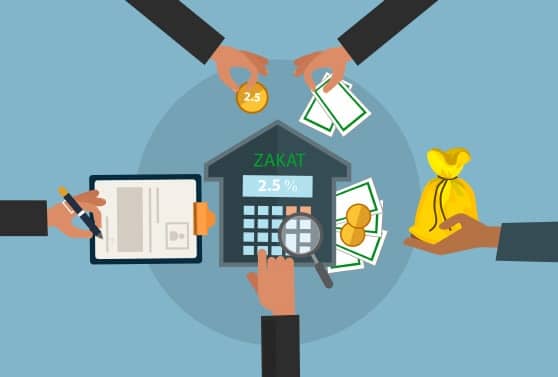The concept of Zakat, one of the five pillars of Islam, represents a fundamental tenet of social and economic justice within the Muslim community. It is an obligatory act of charity for eligible Muslims, designed to purify wealth and uplift the underprivileged in society. For masjids serving as custodians of Zakat funds and distributors of charity, introducing a comprehensive Zakat Management System (ZMS) can revolutionize how Zakat is collected, managed, and distributed. This transformation not only optimizes the impact of Zakat but also strengthens the welfare and cohesion of the masjid’s surrounding community.
Enhanced Transparency and Accountability
A well-designed Zakat Management System fosters transparency and accountability in the masjid’s operations. Traditionally, Zakat collection and distribution have relied heavily on manual records, making it difficult to track, audit, or report on the utilization of funds. By automating these processes, a ZMS can provide a transparent and accurate record of all Zakat transactions, including:
- Collection Records: A ZMS can maintain detailed records of Zakat contributions, including donor names, dates, and amounts.
- Distribution Records: The system tracks how and to whom Zakat funds are allocated, ensuring compliance with Islamic guidelines.
- Real-Time Reporting: The masjid can generate reports showing how Zakat funds have been used, building trust among donors and the wider community.
When the community sees transparent Zakat management, it increases their confidence and encourages more people to contribute.
Efficient Zakat Collection and Distribution
Efficiency is another critical benefit of using a Zakat Management Software. Traditional collection methods can be time-consuming, especially during high-demand periods like Ramadan. A ZMS simplifies this process through features like:
- Online Donations: The system enables donors to contribute through secure online channels, making the process more accessible and convenient.
- Automated Calculations: The system can calculate the amount of Zakat due based on individual financial information, simplifying compliance for donors.
- Immediate Allocation: Once collected, Zakat funds can be distributed rapidly through pre-established channels, ensuring that urgent needs are met promptly.
By streamlining these processes, the masjid can maximize its ability to serve the community, reduce administrative burdens, and focus more on welfare projects.
Targeted Welfare Programs
A Zakat Management System enables masjids to create more targeted and impactful welfare programs. With access to data-driven insights, the masjid can identify the most pressing needs within the community, such as:
- Healthcare Assistance: Funds can be directed to cover medical expenses for needy individuals.
- Educational Support: Zakat can fund scholarships, school supplies, and tuition assistance for underprivileged students.
- Housing Aid: The system can help prioritize cases where individuals require housing assistance.
Through focused allocation, the masjid can maximize the impact of each Zakat dollar, ensuring that it reaches those in genuine need.
Building Community Trust and Engagement
When a masjid manages Zakat effectively, it strengthens the bonds of trust and unity within the community. This trust is built through consistent communication, transparent practices, and impactful charitable initiatives. A ZMS plays a pivotal role in this regard by:
- Engaging Donors: Regular updates on using Zakat funds and success stories from beneficiaries can be shared with donors.
- Community Feedback: The system allows donors and recipients to offer feedback, allowing the masjid to improve its processes and initiatives.
- Visibility of Impact: When people see tangible results—such as families lifted out of poverty, children educated, or community welfare initiatives—they are more likely to engage with the masjid and support its causes.
Compliance with Islamic Guidelines
Ensuring Islamic principles use Zakat funds is a crucial priority for any masjid. A Zakat Management System is equipped with features that help ensure compliance, such as:
- Eligible Recipient Verification: The system verifies whether recipients meet the Islamic criteria for receiving Zakat (e.g., they are poor, needy, or debt-ridden).
- Proper Distribution Channels: This ensures funds are allocated only to approved projects or individuals.
- Shariah Compliance Audits: Regular audits can be conducted to verify that funds are managed per Islamic rules.
This compliance builds credibility and demonstrates the masjid’s commitment to upholding Islamic values.
Data-Driven Decision Making
Zakat Management provides masjids with valuable data and analytics that can guide decision-making. This data can reveal trends, needs, and areas for improvement, such as:
- Demographic Insights: Understanding the composition of the community and the types of needs that exist.
- Impact Analysis: Assessing the effectiveness of various welfare initiatives.
- Resource Allocation: Making informed decisions about prioritizing projects based on data.
With these insights, the masjid can adapt and evolve its welfare programs to address changing community needs.
Cost Savings and Resource Optimization
By automating many of the processes involved in Zakat collection and distribution, a ZMS can save time and reduce operational costs. This cost efficiency translates into more funds available for charitable initiatives. For example:
- Reduced Administrative Burden: Automation minimizes the need for manual record-keeping, allowing staff to focus on more strategic tasks.
- Minimized Errors: Automated processes reduce the risk of human error, ensuring accurate record-keeping and fund allocation.
Every penny saved through increased efficiency can be reinvested into welfare programs, creating a positive cycle of growth and impact.
Strengthening Collaboration and Networking
A Zakat Management System can enable masjids to collaborate more effectively with other charitable organizations, NGOs, and government agencies. This collaboration can expand the reach and impact of Zakat initiatives. Benefits include:
- Resource Sharing: Masjids can partner with organizations that offer complementary services, such as healthcare or education.
- Joint Initiatives: Collaborative efforts can address broader issues such as poverty alleviation, economic development, or social services.
- Community Networks: The system can facilitate better communication and coordination with volunteers, local businesses, and other stakeholders.
Through these collaborations, the masjid can serve as a hub for community welfare, providing a broad range of support services.
Encouraging Sustainable Community Development
A Zakat Management System empowers masjids to go beyond meeting immediate needs and focus on long-term, sustainable development. Examples include:
- Job Training Programs: Investing in skill-building and job placement services for those in need.
- Microfinance Initiatives: Providing small loans to help individuals start businesses and achieve financial independence.
- Community Education: Offering workshops on financial literacy, health, and other topics.
These initiatives foster independence and self-sufficiency, reducing poverty and creating a stronger, more resilient community.
Promoting Community Unity and Solidarity
Finally, effective Zakat management through a structured system brings the community together. When people see the collective impact of their contributions, they feel a sense of pride, belonging, and responsibility toward one another. This unity manifests in various ways:
- Increased Volunteerism: Community members are more likely to volunteer their time and skills.
- Cross-Generational Engagement: Youth and elders can work together on community projects.
- Shared Purpose: Everyone becomes invested in creating a thriving, supportive environment.
In summary, a Zakat Management System is a powerful tool for masjids seeking to strengthen community welfare. By fostering transparency, efficiency, targeted assistance, compliance, data-driven decision-making, and collaboration, such systems enable masjids to maximize the impact of Zakat funds and drive meaningful change in their communities. In doing so, they fulfill a religious obligation and build a legacy of compassion, justice, and collective growth.




